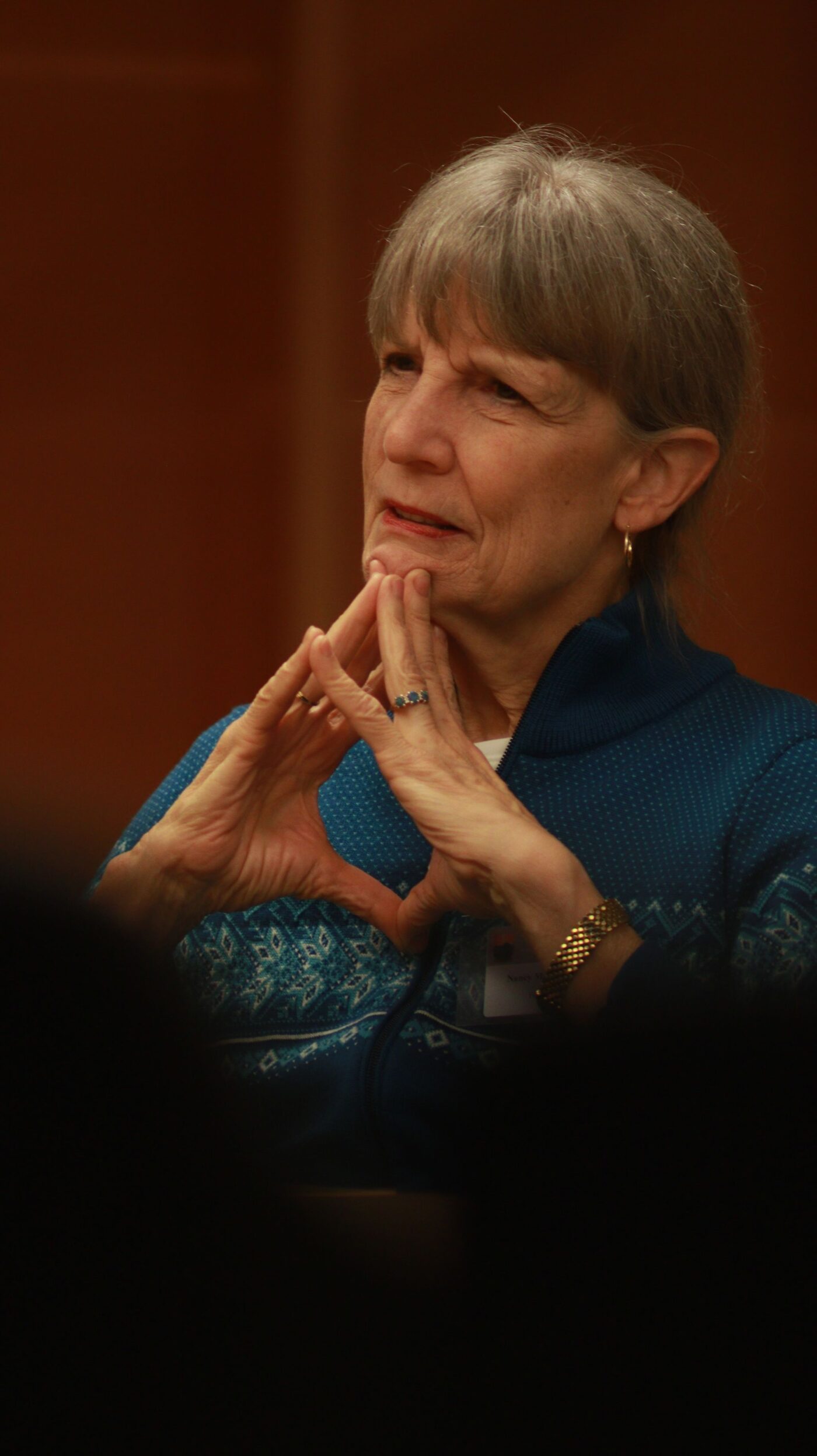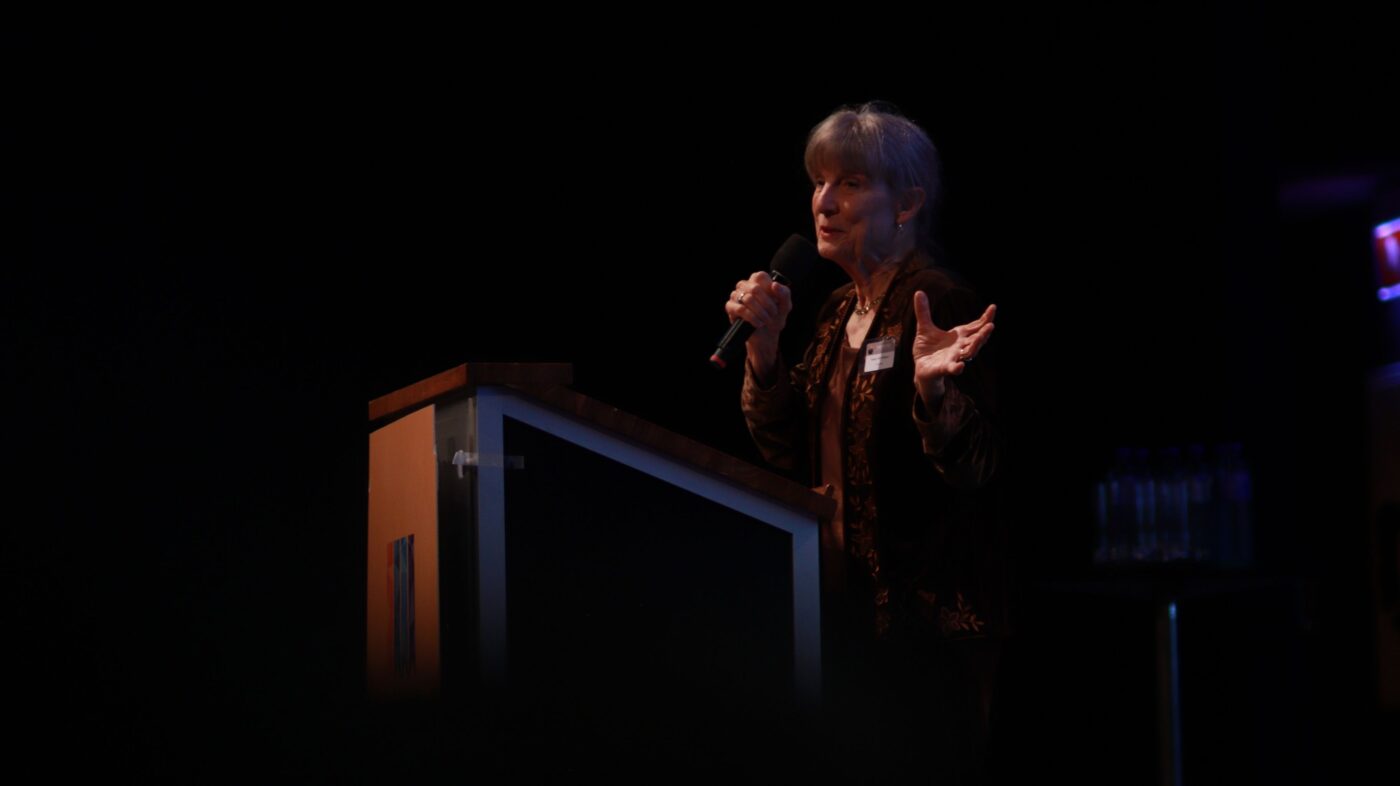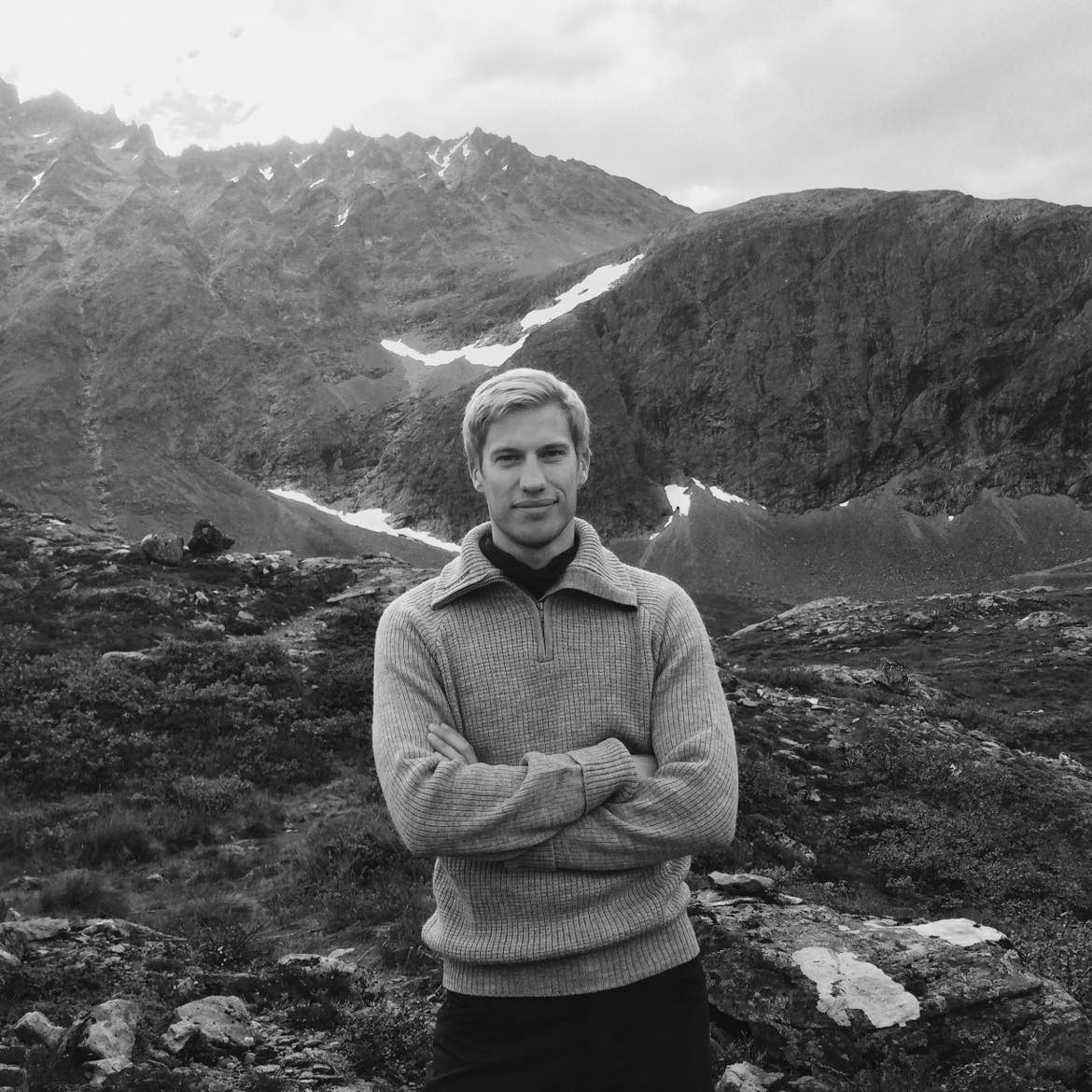Nancy McWilliams is a retired visiting professor at Rutgers University, a teacher, supervisor and esteemed author of several works about clinical therapy. Her writings, which includes works like Psychoanalytic Diagnosis (1994) and Psychoanalytic Psychotherapy (2004), have been translated into 20 languages. After undergoing psychoanalysis in 1969, McWilliams decided to dedicate her life to psychoanalytic psychotherapy.
Katarsis sat down with McWilliams on the last day of this year’s Schizofrenidagene, where she shared her views on personality issues, the feminizing of psychotherapy, and the cathartic powers of psychoanalysis.
– Welcome, Nancy McWilliams.
– Thank you, it is my pleasure to be here.
– I wanted to begin by asking you if patients you see today are struggling with different personality issues compared to earlier in your career?
– I see people struggling now with more profound narcissistic issues, compared to earlier. We did not even have literature on narcissism until the 1960s. Earlier, less patients presented symptoms related to not knowing who they were, or being in the need for constant reassurance about their own importance. In addition, there are also more people organized at the borderline level, which suggests that trauma and neglect are bigger problems today. People nowadays are really struggling to find a consistent sense of identity and self-esteem.
– What in your opinion has driven this change toward more narcissism and emotional instability?
– In general, I think it speaks to how hard it is for people today to feel like they matter. People compare themselves to this vast and expansive global community, as opposed to being in the kinds of communities from which human beings evolved. It’s harder to grow up today. There is more of a sense that we are destroying the earth.
– How are these motifs or challenges brought up in the treatment room?
– Many young people will express it quite explicitly. There’s even been a term invented, solastalgia, which means nostalgia for an imagined, pure state of the earth. I think it’s a variant of a Garden of Eden fantasy; that there was once this innocent, perfect place. Very often people have to go through a period of accepting certain kinds of limitations before they can be realistic about what they can do to make a difference. It is my job as a therapist to help people grieve for what can’t be changed and find what can be.
“People compare themselves to this vast and expansive global community, as opposed to being in the kinds of communities from which human beings evolved”.
The feminizing of a profession
– Has the typical personality of the therapist changed during your career?
– It’s an interesting question. Psychotherapy is feminizing. When a field feminizes, it attracts people who love it for its own sake, who genuinely want to help people, and who are deeply curious about it. It is becoming a female profession. That may not be too surprising since traditional female values of care inherently illuminate the profession, but it also worries me.
– Why is the feminizing trend worrying to you?
– Because when professions feminize, they tend to lose status. Our nurses were once male and were treated better. Secretaries were once males and were treated better. I worry about our profession losing too many men. One of the advantages of being a less idealized profession is that the field doesn’t attract as many narcissistic people, who are using it for their own personal ambitions.
The influence of psychoanalysis

I continued by asking Dr. McWilliams about her own writing style, and on the ways in which psychoanalysis had influenced McWilliams as an author.
– I was influenced by the writing styles of both Sigmund Freud and Theodore Reich, who wrote very personally and without jargon. Psychoanalysis as a field has been burdened by creating all kinds of unnecessarily complicated language. It was part of my aim to write as Freud did. He made clinical language analogous to ordinary human experience. If you are trying to illustrate a theoretical principle, you have to tell a story. It brings it to life. That’s how I try to teach and illustrate different personality dynamics as well.
– In what ways does psychoanalysis influence other fields of psychology?
– It’s interesting to me that other clinical orientations eventually re-discover the same phenomenon that psychoanalysis has been concerned with, but call it something different. They use new metaphors. I think that in one way, we should all be discovering the same thing if we are looking at the same human animal. Another part of me thinks it’s kind of like pouring old wine into new bottles.
Learning from experience
– You have previously spoken to the fact that you went into psychoanalysis yourself back in 1969, and you’ve said that this was a transformative experience for you?
– Yes, that’s right.
«… If i became a mother, i would die.»
– Before we say goodbye, I was curious to know, what about undergoing psychoanalysis was so important for you?
– In the 50s and 60s very few women put together a significant career with being a mother. I was very ambitious back then, and very conscious of sexism as well, which we didn’t even have a name for at that time. I felt it would be impossible for me to have a career and also to become a mother, I had it all rationalized. But then I entered psychoanalysis, like the “old guys” did, and as I worked on my dreams and followed my free associations, I eventually discovered that my rationalization was guarding a deep unconscious belief that if I became a mother, I would die.
– You would die?
– I had lost my biological mother at the age of nine to cancer, and my beloved step mother had died of cancer in a similar way when I was in college. So, I had lost two mothers to cancer, and in the unconscious logic that the primitive mind still has, I believed that if you became a mother, you die. When that finally became conscious, I realized how irrational it was, and started thinking about ways I could put together both roles. If I hadn’t had my analysis, perhaps I would never have had children. My daughters have been the great pleasure of my life, and now my grandchildren as well.
– I entered psychoanalysis with the idea that I was doing this for professional reasons and that I would do this because this was what “the old guys did”, but then I realized that it was the analysis that was so particularly helpful to me, and to them as well. After that, I reoriented and decided that this was what I wanted to study, in as much depth as possible.


